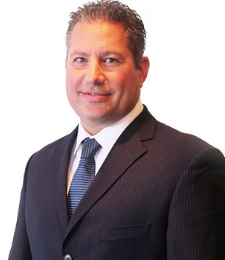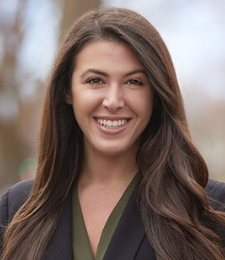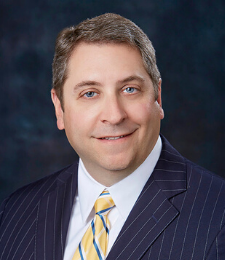I’m thrilled to announce that Bedard Law Group is the new sponsor for the Compliance Digest. Bedard Law Group, P.C. – Compliance Support – Defense Litigation – Nationwide Complaint Management – Turnkey Speech Analytics. And Our New BLG360 Program – Your Low Monthly Retainer Compliance Solution. Visit www.bedardlawgroup.com, email John H. Bedard, Jr., or call (678) 253-1871.

Every week, AccountsRecovery.net brings you the most important news in the industry. But, with compliance-related articles, context is king. That’s why the brightest and most knowledgable compliance experts are sought to offer their perspectives and insights into the most important news of the day. Read on to hear what the experts have to say this week.
Washington AG Sues Collector Over ‘Settlement Offers’ For Time-Barred Debts
The Attorney General of Washington on Friday filed a lawsuit against Convergent Outsourcing, accusing the company of “pushing” individuals to settle time-barred debts by creating a “deceptive impression” that the company would sue to collect on the debt when it could not. More details here.

WHAT THIS MEANS, FROM ETHAN OSTROFF OF TROUTMAN PEPPER: The Washington Attorney General’s action against Convergent Outsourcing, Inc. speaks to the persistence of state regulators to piggyback on successful private litigation, even after consumer lawsuits are statutorily stale. Here, the Washington Attorney General explicitly noted that the settlement offer letter at issue in the Fifth Circuit’s decision in Daugherty v. Convergent Outsourcing, a caseinvolving an individual claim about a single settlement offer letter, was from 2016. Now, almost half a decade later, Washington seeks restitution related to more than 75,000 letters sent to Washington consumers from January 1, 2013 to February 23, 2015, and related civil penalties. Even though this action was spurred by the Attorney General after receiving only three “settlement offer” letters, the Washington Attorney General’s complaint demands that the court order Convergent to return all revenue it collected from the more than 3,000 Washington consumers as a result of the letters at issue, and also requests restitution nationwide (despite this demand extending beyond the scope of the Washington Attorney General’s authority). Additionally, these allegations have the potential to result in millions of dollars to the State in the form of civil penalties (up to $2,000 per violation) and related attorneys’ fees and costs. We should expect state Attorneys General to continue keenly taking notice of the rulings in private consumer protection claims, especially in light of the COVID-19 landscape where states are looking for opportunities to supplement their budgets as hiring freezes and budget cuts take effect.
The Attorney General’s utilization of this ruling, from more than five years ago, also demonstrates the persistence of state regulators and their ability to utilize tools such as tolling agreements and the fact that equitable claims often do not have a statute of limitations. As a result, if a company is found to have violated consumer protection laws, it should take the necessary efforts to prepare for follow-on lawsuits by state Attorneys General. State regulators often will be looking to ensure that a company has changed the controversial business practice and will be considering whether restitution has already been provided to affected consumers. As such, companies will want to work proactively to demonstrate that they are independently remedying the problem to minimize the potential for regulatory action that may yield additional civil penalties.
THE COMPLIANCE DIGEST IS SPONSORED BY:

Appeals Court Overturns Article III Case Even Though Overcharged Balance Was Refunded
Simply refunding someone who was overcharged is not enough to argue that the individual does not have standing to sue under Article III of the Constitution, an Appeals Court has ruled, overturning a lower court’s dismissal of a case because the plaintiff should have been paid $3.76 in interest. More details here.

WHAT THIS MEANS, FROM DAVID SCHULTZ OF HINSHAW CULBERTSON: The 9th Circuit in Van v LLR rejected a Spokeo defense in a consumer fraud class action in which the defendant had refunded a sales tax levy before the lawsuit was even filed. In doing so, the Court ruled consistent with holdings by the 7th and 11th Circuits that the lost use of money is sufficient injury to confer Article III standing.
The facts are fairly straightforward. LLR mistakenly charged a sales tax to certain customers. It became aware of the error as a consequence of a separate lawsuit and thus returned the tax, but not the interest on the tax. It returned to plaintiff $531.25 but not $3.76 in interest. Plaintiff filed a class action asserting conversion, misappropriation and violation of Alaska’s consumer fraud act. The district court judge granted a motion to dismiss, ruling that the de minimusinterest charge was not sufficient to be a concrete injury under Article III.
The 9th Circuit viewed the facts differently when considering the standing issue, focusing on the loss use of money and not the small interest amount. It phrased the issue as: “whether the temporary deprivation of money gives rise to an injury in fact for purposes of Article III standing.” It then held that the inability to have the use of funds is a concrete injury. It reasoned that “[e]very day that a sum of money is wrongfully withheld, its rightful owner loses the time value of the money.” It thus remanded the case for further proceedings.
The case may be applicable to the credit and collection industry. If there is a situation where a payment is challenged, returning that money will not “moot” the case, unfortunately. However, doing so will surely result in eliminating any actual damage claim for plaintiff and a class. It also seems advisable to include interest in the refund.
Debt Relief Company Settles With NY AG; Will Repay $3.6M to Customers
For the second time in nine years, the Attorney General of New York has reached a settlement with a debt relief company that was accused of engaging in deceptive practices. More details here.

WHAT THIS MEANS, FROM KATY SPICER OF SQUIRE PATTON BOGGS: Debt relief companies beware: do not misrepresent consumer savings and do not engage in underhanded charging practices. The Freedom Debt Relief (“FDR”) case history is a prime example of what debt relief companies should not do in selling their services. In 2011, FDR agreed to change the way it advertised consumer savings so it was not misleading. However, “[i]nstead of complying with this explicit requirement in the 2011 settlement, Freedom Debt Relief continued to advertise savings on its website without making the required disclosures.” And now FDR must pay $3.6 million to the State of New York for continued violations. But this is pennies in comparison to what FDR shelled out last year to settle a CFPB complaint. Indeed, it paid out over $24 million for allegedly “charging advance fees and failing to inform consumers of their rights to funds they deposited with the company … [and] charging consumers without settling their debts as promised, charging consumers after having them negotiate their own settlements with creditors, and misleading consumers about the company’s fees and its ability to negotiate directly with all of a consumer’s creditors.” Needless to say, the New York and CFPB settlements are a must read for any debt relief company.
Judge Grants MTD in FDCPA Case Over Second Validation Notice
A District Court judge in Florida has granted a defendant’s motion to dismiss after it was sued for violating the Fair Debt Collection Practices Act because it included the validation notice disclosure in a second collection letter months after sending the initial validation notice. More details here.

WHAT THIS MEANS, FROM MIKE FROST OF MALONE FROST MARTIN: In Mathis v. Allied Interstate LLC and LVNV Funding, plaintiff alleged that Defendants violated the Fair Debt Collection Practices Act (FDCPA) by sending a second validation notice with the following disclosure and thereby made a false, misleading or deceptive representation in their attempt to collect a debt:
Unless you notify us within 30 days after receiving this letter that you dispute the validity of this debt or any portion thereof, we will assume that this debt is valid. If you notify us in writing within 30 days after receiving this letter that you dispute the validity of this debt, or any portion thereof, we will obtain and mail to you verification of the debt or a copy of a judgment. If you request of us in writing within 30 days after receiving this letter, we will provide you with the name and address of the original creditor, if different from the current creditor.
The initial validation notice was sent to the consumer in March of 2019 and the second similar notice was sent in June of 2019. The Court reviewed and cited several prior cases that previously decided this issue finding that the second letter does not hamper the unsophisticated debtor’s exercise of his or her right to request validation of the debt. The Court further reasoned that a debtor’s potential “litany of questions” alone “does not amount to liability under the FDCPA.”
The Court also grappled with the contention that the Defendant never had an intention of granting an additional 30 days to dispute the debt, but since Mathis did not raise this issue in the complaint, Mathis requested leave to amend. The Court did not grant leave to amend and determined that any such amendment would be futile. The Court ultimately granted Defendants Motion to Dismiss with Prejudice.
Fla. Appeals Court Reverses Itself, Now Counts Condo Fees as Debts Under State Law
A state Appeals Court in Florida has changed its mind and decided to walk away from a longstanding precedent that condo association fees do not qualify as debts under the Florida Consumer Collection Practices Act by reversing a lower court’s ruling that had dismissed a case brought against defendants for publishing a list of “deadbeats” who had not paid their dues. More details here.

WHAT THIS MEANS, FROM LAURIE NELSON OF PAYMENTVISION: As HOA’s or homeowner associations in Florida are commonplace in most single-family home developments, and usually, in every condominium or townhome communities, this is a crucial case for all in Florida to review. The ability to collect assessments from unit owners on a timely basis is vital to ensure financial health and stability. An association’s governing documents and Florida law provides specific enforcement mechanisms to assist associations with their collection efforts, including lien and foreclosure rights, late fees, interest, fines, suspension of use and voting rights and the ability to demand rental payments from units occupied by tenants (Florida Condominium Act, Fla. Stat. §718.101, et. seq; Florida Homeowners’ Association Act, Fla. Stat. §720.301, et. seq.). However, as this case confirms, when exercising such rights, an association cannot ignore the protections provided to each homeowner as a consumer under the Florida Consumer Collection Practices Act (FCCPA), and the Fair Debt Collection Practices Act (FDCPA) (Fla. Stat. § 559.55 et seq; 15 U.S.C. § 1692 et seq).
This particular case is an excellent example of some of the aggressive tactics used today by HOAs that could be held to violate such protection. The HOA locked the owner out of storage units, made derogatory statements about the owner, and disclosed information to third party vendors with respect to the owner’s delinquency. While initially, the district court, in this case, rendered its decision based on the FL’s Fifth District Courts holding that HOA assessments were excluded from the FDCPA’s definition of “debt,” (Bryan v. Clayton, 698 So. 2d 1236 (Fla. 5th D.C.A. 1997) the FL First District Appeals overturned this decision by using the simple rationale that mirrored a 2017 US 11th Circuit Court of Appeals decision (Agrelov v. Affinity Management Services, LLC, Case No. 15-14136, 11th Cir., Nov. 9, 2016). The Appellate Court reasoned that because a purchaser of a residence must contractually agree to pay the assessments as a prerequisite to purchasing, that purchaser takes on “debts” for those assessments under the FCCPA.
Accordingly, all associations in Florida need to take time to review collection policies ongoing. And while it may appear that aggressive tactics such as those in this case were overlooked in the past, this cannot be the assumed case going forward.
Judge Denies MSJ in FDCPA Case Over Use of Alternate Name
A District Court judge in New Jersey has denied a defendant’s motion for summary judgment after it was accused of violating the Fair Debt Collection Practices Act by using a different company name in voicemail messages left with individuals. More details here.

WHAT THIS MEANS, FROM AYLIX JENSEN OF MOSS BARNETT: In this case, the plaintiffs filed a putative class action against a defendant debt collector for, amongst other allegations, failing to use its “true name” when communicating with them in connection with the collection of a debt, in violation of the FDCPA. The plaintiffs, New Jersey residents, purportedly incurred a debt that was transferred to the defendant for collection. The defendant allegedly left pre-recorded messages on the plaintiffs’ phone using an acronym of its name registered in New Jersey. In response to the defendant’s motion to dismiss, the plaintiffs filed an amended complaint. The defendant responded by filing a motion to dismiss the amended complaint, which the court granted. The plaintiffs appealed the district court’s order.
Almost a year later, the Third Circuit Court of Appeals issued an opinion vacating in part and affirming in part the district court’s order. Specifically, the Third Circuit found that the plaintiffs had stated a “plausible claim” that the defendant had not used its “true name” because, “as alleged in the complaint,” the name used during the pre-recorded message was neither the defendant’s full business name, the name under which it usually transacts business, nor a commonly used acronym of its registered name, and no information before the court indicated otherwise. The Third Circuit emphasized that while the plaintiffs did not deny that the acronym was a name the defendant could use, they claimed that “the acronym is commonly associated with other debt collection companies…and that it could refer to hundreds of other businesses registered to do business in New Jersey under names” that include the same acronym. The Third Circuit noted that the defendant would have an opportunity “to expand the record” later in the case.
After the case was remanded back to the district court, the defendant filed a motion for summary judgment, arguing that the acronym used is the name under which it usually transacts business and is a commonly used acronym of its registered name. The district court admitted there was some evidence supporting the defendant’s argument, but concluded that it did not need to rule on the issue “because, viewing the facts in the light most favorable to Plaintiffs, [the defendant] did not consistently use the [acronym] when attempting to collect Plaintiffs’ debt.” The district court highlighted that the record showed attempts to collect the debt where the acronym was not mentioned, which was “plainly inconsistent” with the defendant’s subsequent use of the acronym.
The district court’s holding serves as a cautionary tale that using a name considered to be a “true name” for purposes of the FDCPA is not sufficient if there are inconsistencies in communications with the particular consumer. A best practice is to consistently use a name registered with a government agency or bureau, as that enables debt collectors to produce public records during early dispositive motions to establish the appropriate use of a full name or “transacting as” name to contact a consumer.
FDIC Follows OCC’s Lead, Enacts ‘Valid When Made’ Rule
Following the lead of its fellow regulator, the Federal Deposit Insurance Corporation yesterday announced a rule that ensures the terms of loans remain valid after they are sold or transferred, a provision that is critical to sales of loan portfolios in the secondary market. More details here.

WHAT THIS MEANS, FROM RICK PERR OF KAUFMAN DOLOWICH VOLUCK: The FDIC brought market certainty to the secondary loan market by following the lead of the OCC in codifying the “valid when made” rule. The 200-year old rule was put into doubt in an opinion issued by the United States Court of Appeals for the Second Circuit in 2015.
This should bring an end to efforts by local and state governments to impose significant restrictions on asset buyers and their collection agencies by changing the terms of the paper they buy through operation of law. In short, if the terms of the loan are valid when held by a bank, they continue to be valid when owned by a non-bank.
Companies to Pay $35k to Settle CFPB Allegations of Unfair and Deceptive Acts
The Consumer Financial Protection Bureau announced a settlement with a trio of companies accused of engaging in deceptive acts and practices in violation of the Consumer Financial Protection Act and the Fair Credit Reporting Act. The companies will pay a combined $35,000 in civil money penalties. More details here.

WHAT THIS MEANS, FROM HELEN MAC MURRAY OF MAC MURRAY SHUSTER: At first blush, this looks like a pretty low fine, even for the Kraninger administration. A review of the Consent Order, however, identifies the only misdeed as refusing to address consumers’ complaints about errors on their credit report. Companies that provide information to credit reporting agencies are required to investigate these complaints themselves. Since the consumers could do that, the likelihood of harm here was low. Hence, the pretty low fine.
FCC Says Platforms That Require Manual Dialing Do Not Meet Definition of Autodialer Under TCPA
The Federal Communications Commission last week issued a Declaratory Ruling in which it determined that a calling platform does not meet the definition of autodialer under the Telephone Consumer Protection Act — whether it is used for placing calls or sending text messages — if the platform is “not capable of originating a call or sending a text without a person actively and affirmatively manually dialing each one.” More details here.
FCC To Vote on Call Blocking Safe Harbor
The Federal Communications Commission will vote next month on establishing a safe harbor that would protect phone carriers from being sued if they inadvertently block a legitimate call as a means of protecting consumers from receiving unwanted calls. But will the safe harbor induce carriers to be more aggressive in blocking calls, including those that may be coming from collectors? More details here.

WHAT THIS MEANS, FROM DANIELLE NEWMAN OF MANATT: In issuing much-welcomed guidance in a ruling on a 2018 petition from the P2P Alliance, the FCC has helped to define the bounds of what constitutes an autodialer by clarifying that a calling platform that cannot originate a call or send a text without a person manually sending each message one by one is not an autodialer. As such, the mere fact that calling equipment may be able to make calls or send texts to a “large volume” of phone numbers is not probative of its autodialer status.
This is significant as courts across the country differ in their interpretations of what constitutes an autodialer, including how much human intervention is sufficient to take a platform outside the TCPA’s ether. This ruling does not, however, clear up all debates on the human intervention front as it does not clearly delineate whether lesser amounts of human intervention may be sufficient.
While the ruling is a win for the P2P community on both the autodialer issue and its reiteration of the “prior express consent” standard applicable to calls placed to parties who “knowingly released” their phones numbers to callers, the ruling has some drawbacks. First, systems which require significant human intervention in the lead up to dialing numbers but which do not require human intervention to send each and every message manually (i.e. the system can make the next call or send the next text after significant human intervention up until that point), may still constitute autodialers under this ruling. Second, in a footnote, the ruling explicitly declines to exempt text messages sent for political purposes from the TCPA’s scope, noting that “the TCPA’s prohibitions encompass calls and texts even if they do not contain a telephone solicitation.” Thus, in the midst of a busy political season, P2Ps are not completely in the clear but if their systems resemble the one described in the ruling they may be able to breathe a sigh of relief.
Additionally and on a different note, the FCC’s upcoming vote on whether to establish a safe harbor for a phone carrier’s inadvertent blocking of a legitimate call could lead to enhanced protections for consumers but added difficulty for those in the credit and collection industry. The safe harbor may result in carriers blocking even more calls than they do at present, including legitimate calls from collectors. I can imagine many of us are no strangers to declining a call marked as spam only to find out later that the call was legitimate. But for now we must wait a little longer to see how the FCC votes on this interesting issue that pins phone carriers’ impetus to protect consumers against those of the collectors with legitimate purposes for making calls.
I’m thrilled to announce that Bedard Law Group is the new sponsor for the Compliance Digest. Bedard Law Group, P.C. – Compliance Support – Defense Litigation – Nationwide Complaint Management – Turnkey Speech Analytics. And Our New BLG360 Program – Your Low Monthly Retainer Compliance Solution. Visit www.bedardlawgroup.com, email John H. Bedard, Jr., or call (678) 253-1871.









